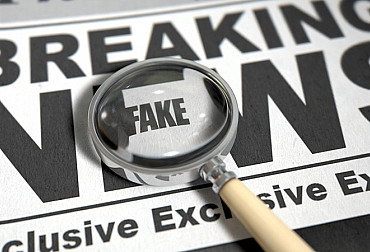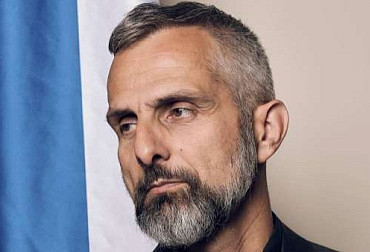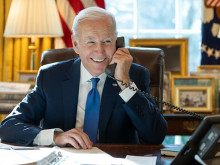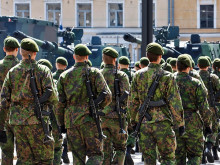Ukraine's quick victory and greater Western support are the cheapest ways to end the conflict
The West should make it a priority to repel Russian aggression in Ukraine as quickly as possible. Delay and cautious aid only deepen the West's problems. Stepping up military support for Ukraine, which has so far been too cautious, is the only realistic way to speed up the end of the war and minimise the threat to Western interests. These are among the main conclusions of the latest report by the Jagiellonian Club's Centre for Analysis, 'How to end the war in Ukraine? Scenarios for ending the conflict" by Joseph Lang.

More military support is now needed
The author of the new CAJK report argues that the protracted conflict in Ukraine significantly increases the indirect costs of the conflict for Western countries as well. These include high energy prices, high inflation and refugee costs. The optimal way to reduce or avoid these costs in the long term is to increase military support to Ukraine. This is a cheaper alternative than prolonging the conflict with only limited military aid.
The United States, a major source of aid, has provided nearly $71 billion in total support to Kiev as of February 24, 2022, which is considerably less than the estimated costs of the wars in Iraq and Afghanistan-approximately $250 billion and $115 billion per year ($2 trillion total), respectively.

As Jozef Lang points out, despite the gigantic difference in scale, US taxpayer money has translated into real effects in Ukraine - Russia's offensive potential for the coming years has clearly been reduced. This has also strengthened the security of the US' European allies. Kiev, which maintained a functioning state despite the attack, managed to regain 45% of the territory previously occupied by Moscow.
Lang stresses in the publication that Western support should be primarily for weapons systems that will enable attacks on strategic Russian facilities that are currently beyond the reach of Ukrainian forces.
The report does not neglect the challenges. There is often concern in the US and Western Europe about an escalation of the conflict on Russia's part if support for Kiev increases. Lang points out that the West's crossing of the 'red line' to date has shown the low degree to which the Kremlin has resisted Western resolve. If there is an escalation, it will be the result of internal factors in Russia, not an immediate reaction to Western actions.
The author stresses that a significant escalation (e.g. a tactical nuclear attack on Ukrainian territory) would be very risky, even in the context of Russia's key relationship with China, which has explicitly requested that nuclear weapons not be used. The Kremlin has so far avoided risky steps beyond a large-scale invasion of Ukraine because the West (including the United States) can effectively counter Russia in a variety of ways.
Vladimir Putin hopes that the protracted conflict will weaken the West's resolve to support Ukraine before Russia's war potential is weakened. He seeks to exploit Western fears of escalation, but in the report's author's view, there is no real willingness to take risks behind this rhetoric.
Deterrence is to be crucial in the future course of the war - a weak Western response to hybrid actions would be interpreted by the Kremlin as a sign of weakness and the West's willingness to make concessions in the event of confrontation.
The end of the war will be decided by Moscow and Kiev
As Józef Lang argues, internal conditions, not external pressures, determine the length of a war. Even a reduction in material Western support would not directly persuade Kiev to agree to a cessation of the conflict, a scenario that could even lead to the break-up of NATO.
The Ukrainian public overwhelmingly expects a complete Ukrainian victory - 64% believe in regaining all pre-2014 Ukrainian territory (including the Crimean peninsula). This limits the room for compromise for Ukrainian decision-makers and is reflected in the entire political scene, where there is a consensus on the continuation of the war. Meanwhile, any Western pressure is destined to fail, as Ukrainian politicians, regardless of political party, would continue the war effort without external support.
The author of the CAJK report stresses that the West has very limited options to get the two sides to end the war - this will be decided by Kiev and Moscow. Although Russia is looking for ways to stop the conflict, it does not want to take a significant step back for fear of internal and external damage to its reputation.
Directly influencing the conflict, either through military involvement or by ending support for Ukraine, would be very damaging to the West's strategic interests. On the other hand, it may increase costs for the Russian side, including by supporting Ukraine.
Sanctions against Russia are crucial in the long term
However, while the West has no real ability to force Moscow to end the invasion, it can increase tensions among elites inside Russia through sanctions and restrictions. According to Lang, the military disparity between the parties means that Ukraine is unlikely to be able to fully reclaim its territories, barring an internal Russian crisis.
As the former Center for Eastern Studies analyst points out in the report, Prigozhin's July coup attempt showed the polarization within the Russian elite (between the Defense Ministry and the Wagner group, among others) and cites - in his view likely - media reports of a split on the "peace side" (oligarchs feeling the sanctions, e.g. WTB Bank chairman Andrei Kostin), the "war party" (senior members of the security apparatus) and the "silent party" (technocrats, e.g. Prime Minister Mikhail Mishustin). It also draws attention to the opacity of ties (based mainly on business interests and personal relations) between key actors within Russia.
Although the Kremlin has so far mastered the economic means of external pressure and liquidity maintenance, in the long run they increase the costs of invasion for Russia.
The author argues that even budget subsidies from depleted reserves and increased prices for exported energy products cannot limit the decline in GDP caused by sanctions and Western withdrawal in the long run. In 2022, Russia ran a budget deficit of $45 billion instead of the projected surplus of $17.7 billion. This year, too, is a deficit - it was $28.44 billion in the first seven months.
The above figures are reflected in the functioning of Russian society. At the beginning of the year, as many as 65% of Russians surveyed said that their standard of living had decreased compared to last year.
Even civil unrest in Russia is unlikely to cause a decline in the current popularity of nationalist and militarist attitudes. On the contrary, they may strengthen these attitudes.
More importantly, in terms of end-of-war scenarios, Russian oligarchs could lose as much as $94 billion as of February 24, 2022, according to Western estimates. Thus, the source of the political crisis in Russia is more likely to be the suddenly apparent tensions within the elite than the actions of a largely passive Russian public.
More support for more reform
However, Lang clearly states that support for Ukraine should be implemented on the basis of the "more for more" principle. More intensive assistance should require a greater push for internal reforms.
Western societies and elites are increasingly showing signs of fatigue with the very assertive attitude of Ukrainian politicians towards their allies. The lack of rapid implementation of reforms by Ukrainian politicians is justified by the persistence of the war.
In order to succeed, it is necessary to cooperate and communicate with the Ukrainian public, which is very much in favour of joining Western structures (85% are in favour of joining the EU). At the same time, 77% say that corruption is the biggest problem in their country (third place overall).
Józef Lang suggests that Ukraine should have Western-sponsored media that are not subject to the influence of the oligarchs.
What is the most likely scenario?
The key factors that will decide the fate of the war will be the ability of the Ukrainian armed forces to successfully fight the Russian army and regain control of Ukrainian territory, the sustainability of Western support for Ukraine, and the internal situation in the Russian Federation. This is what needs to be monitored in determining the likely scenario.
The report 'How to end the war in Ukraine? Scenarios for ending the conflict" considers the continuation of the current conflict dynamics as the most likely scenario for the coming months. However, this does not mean a static state - both sides will bear the military, economic and social costs of the ongoing conflict, which will affect the future fate of the Russian invasion.





















